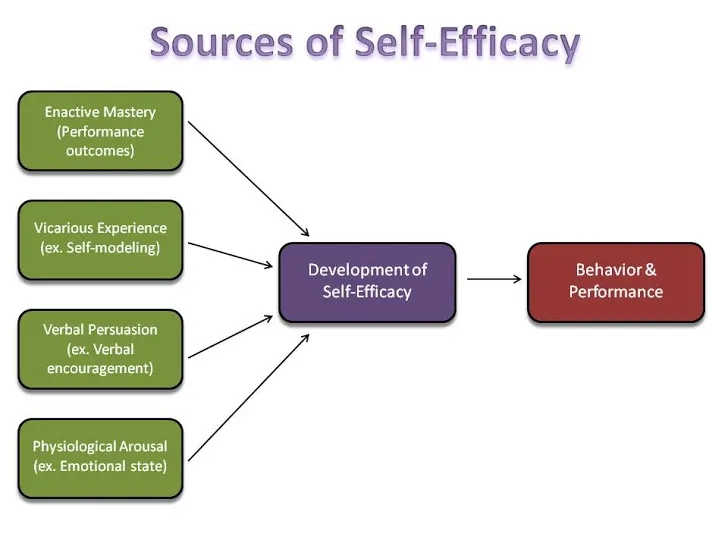Self-Efficacy.
True wisdom knows the difference between an inconvenience and a problem.

“No matter the situation, never let your emotions overpower your intelligence.”
Do we feel we can rise and conquer any obstacle or challenge in your way? Or do we give up in defeat? Are we able to cope? Or do you doubt our abilities to hit life’s curveballs? In simple terms, our ability to achieve a goal or complete a task depends on whether we think we can do it (self-efficacy). And whether we think it will have good results (outcome expectancy).
Self-efficacy is a person’s belief in their ability to succeed in a particular situation. Albert Bandura described these beliefs as determinants of how people think, behave, and feel. Self-efficacy affects the degree of effort individuals apply to a given task. Someone with high levels of self-efficacy is resilient and persistent in the face of setbacks. While someone with low levels of self-efficacy may disengage or avoid challenging situations.
Virtually all people can identify goals they want to accomplish, things they would like to change, and things they would like to achieve. However, most people also realize that implementing these plans is not simple. Bandura and others have found that an individual’s self-efficacy plays a significant role in how goals, tasks, and challenges are approached.1
People with a strong sense of self-efficacy:
- Immerse in activities in which they participate
- Form a stronger sense of commitment to their interests and activities
- Recover quickly from setbacks, disappointments, and failures
- View challenging problems as skills to be mastered
People with a weak sense of self-efficacy:
- Avoid challenging tasks
- Believe that complexity is beyond their capabilities
- Focus on personal failings and adverse outcomes
- Quickly lose confidence
For me, self-efficacy translates into our ability to cope with life’s challenges. The big question is, how do we tap into the source that energizes us through life’s ups and downs. Research indicates that self-efficacy flows from four events:
Personal Experience (Mastery)
When predicting their ability to succeed at a new task, we often look to their past experiences with similar circumstances. Our past experience strongly affects our feelings of self-efficacy, which is logical. If you’ve already done something many times, you will likely believe you can do it again. That logic seems like a no-brainer.
Observation (Vicarious Experience)
We also make judgments about our own capabilities by watching others. In most cases, what someone else can do, we can too. Mimicking others who found success is a massive performance edge in facing obstacles or challenges.
Persuasion (Verbal Persuasion)
Those around us may try to increase our self-efficacy by offering support and encouragement. This type of persuasion does not always have a substantial effect on self-efficacy, particularly compared to the impact of personal experience or observation.
Emotion (Physiological Arousal)
Emotions such as fear and anxiety can undermine our feelings of self-efficacy. On the other hand, positive emotions can generate greater feelings of self-efficacy.

If we want to raise our coping ability (self-efficacy), we should look at difficulties as challenges rather than threats. Failure is not permanent. We are not victims. Life happens for us, not to us. Finding solutions to problems is trial and error. Seek out and mimic those who have successfully conquered a similar obstacle or challenge. We are rarely the first person to stare down a specific challenge. Learn from those who have climbed the mountain before us. Do what worked for them as we figure out what will work for us.
Until next time. Travel Safe.
End Notes
(1) Bandura A. Self-Efficacy in Changing Societies. Cambridge University Press.

